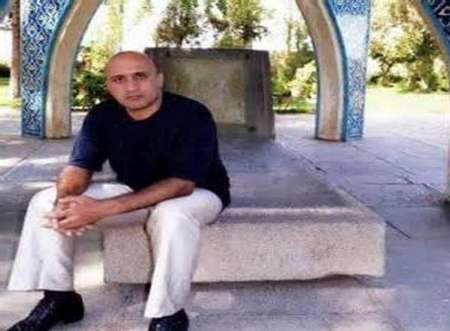Sattar Beheshti Murder Case Closed

Sattar Beheshti, 35, a laborer and blogger, was arrested on October 30, 2012, by Iran’s Cyber Police and died under torture by his interrogator on November 3, 2012.
A Tehran court has closed the case against the interrogator accused of murdering blogger Sattar Beheshti, determining it was not murder but rather “quasi-murder.” Gohar Eshghi, Beheshti’s mother, told the International Campaign for Human Rights in Iran that she is protesting the court’s decision to dismiss the murder charges in the case of her son’s interrogator. In order to pursue justice for “quasi-murder,” the family would have to open a new case, their lawyer said.
“I don’t believe the ‘quasi-murder’ of Sattar and consider it ridiculous. By closing the case of Sattar’s murder, the court questioned the entirety of the system. They showed by this that Sattar’s interrogator is not the only one at fault and in need of a trial in order to end this story, but that the entire system is at fault and they are unable to put the entire system on trial. Closing Sattar’s murder case means that there is torture, a lot of it, too, only the authorities are afraid to say it,” Eshghi told the Campaign.
Giti Pourfazel, the lawyer representing the Beheshti family in the case, was informed on Tuesday, December 3, after she appeared in the criminal court following a summons, that Sattar Beheshti’s murder case has been closed. “We continue to consider Sattar Beheshti’s death a murder and do not accept the quasi-murder determination,” she told IRNA. She also said that in order to pursue the charge of “quasi-murder,” the family would have to file a different lawsuit.
Asked whether she intends to file a lawsuit for the quasi-murder of her son, Sattar Beheshti’s mother told the Campaign, “Our lawyer, Ms. Pourfazel, called me on the phone and gave me the news. I feel like I did during the days when they gave me the news about my Sattar’s death. I still don’t know what I want do do. I’m dazed. Next week on Wednesday, we will have a meeting with my lawyer to talk and to make the final decision.”
Sattar Beheshti, 35, a laborer and blogger, was arrested on October 30, 2012, by Iran’s Cyber Police and died under torture by his interrogator on November 3, 2012. His body was buried at Robat Karim Cemetery near where he lived.
Gohar Eshghi pointed out the existing medical records in her son’s case and his interrogator’s confession about murdering her son. “In a medical report that is part of the case, it is written that Sattar suffered from hemorrhaging in his liver, lungs, and cerebellum, keeping oxygen from reaching the different parts of his body, and has slowly died. More interestingly, each time I spoke with Mr. Shahriari, the case investigative judge, they would tell me that Sattar’s cause of death was murder. His interrogator asked me to forgive him. Now I don’t know how Mr. Shahriari has all of a sudden changed his mind, saying that it was ‘quasi-murder,'” she told the Campaign.
“They say that Sattar did receive blows, but that the blows were not fatal. They say Sattar’s death is one of those rare cases where the cause is not known. What does all of this mean? Shouldn’t someone be telling me how my son died? He was a 35-year-old man who did not have any illnesses. He died three days after his detention. So, how did he die? They say themselves he didn’t have a heart attack, and that he did not die of unnatural causes, so what was the reason anyway?” said Gohar Eshghi.
“Some hard days went by for us. They didn’t let me see my son’s face before his burial. I only saw that they put him in the grave wrapped in a bloody shroud. We were repeatedly threatened and verbally abused. I passed all those days, because I was hopeful my son’s murderer would be prosecuted. But now I see that the murder charge has been lifted. I don’t know, maybe his interrogator has been released, too. All I know is that this is ridiculous and I will never forgive the injustice I have experienced,” she added.
In November, a source close to Sattar Beheshti’s case reported that a medical report discovered inside Beheshti’s 3,000 page case file indicated that the blogger died from internal bleeding, hemorrhaging in his lungs, liver, kidneys, and brain. Specialists who have reviewed the report state that he died of internal and brain hemorrhaging.
A few days after this news was published, Reza Heydarpour, the resident physician of Evin Prison who had examined Sattar Beheshti upon arrival at the facility and had written the medical report, was arrested. He is currently being held at the Intelligence Ministry’s Ward 209 at Evin Prison, and there have been no news reports about him since his arrest.






